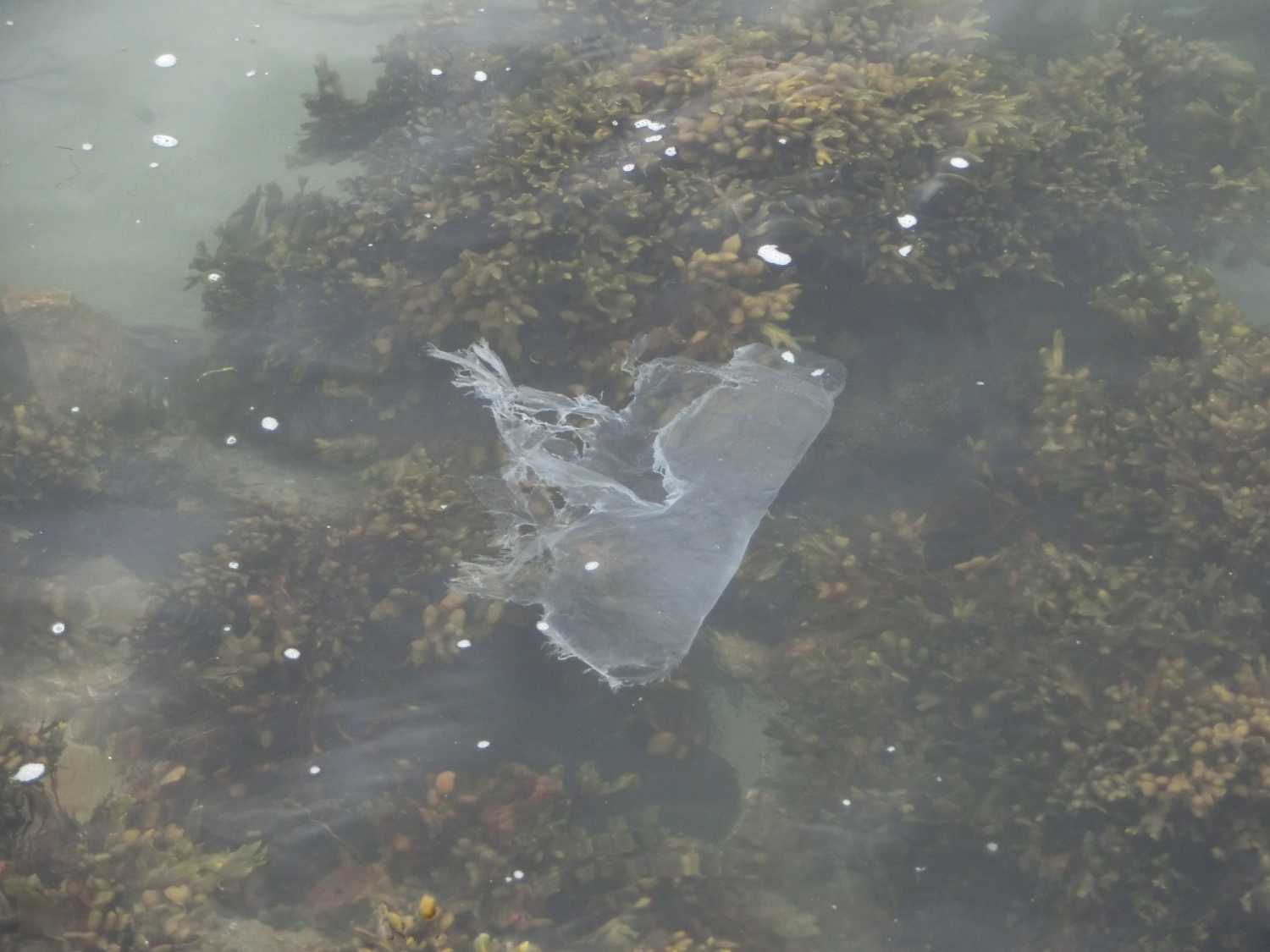Opinion | It’s time to limit plastic bag consumption


A floating plastic bag.
Off the coast of the Philippines last week a team of researchers found nearly 90 pounds of plastic in the stomach of a dead whale. Single-use plastic shopping bags were abundant in the collection of plastic they extracted. Researchers estimate that single-use plastic bags alone kill more than 100,000 marine animals annually, according to the Center for Biological Diversity, and there’s nobody to blame but ourselves. The average American family takes home about 1,500 single-use plastic bags a year.
But some states are determined to make that number zero. New York recently approved legislation that will ban single-use plastic bags statewide. It is now the second state, following California, to pass a statewide law. The ban, which is expected to begin next March, will prohibit stores from handing out single-use, nonbiodegradable plastic bags to their customers. It’s time for Pennsylvania to take the initiative and limit its single-use plastic bag consumption.
Pennsylvania may be landlocked, but plastic doesn’t just pollute the ocean when people toss it into the waves instead of responsibly disposing of it in a trash can. In fact, up to 80% of the plastic polluting the ocean was disposed on land, according to the World Wildlife Fund.
“Plastic you put in the bin ends up in landfill,” the World Wildlife Fund writes on its web page. “When rubbish is being transported to landfill, plastic is often blown away because it’s so lightweight. From there, it can eventually clutter around drains and enter rivers and the sea this way.”
And even if your plastic bags don’t end up in the ocean, they still pollute the land. Single-use plastic bags can photodegrade over the timespan of 1,000 years, but they do not biodegrade. Photodegradation means that they simply break into smaller particles of plastic — meaning while biodegradation enriches the soil, photodegradation just poisons it.
Unfortunately, Pennsylvania’s lack of past initiative on this issue is well documented. A bill barring Pennsylvania counties from implementing plastic bag restrictions made it all the way to the Pennsylvania House in 2017. Bipartisan supporters argued that measures to limit plastic bag use would endanger jobs. Gov. Tom Wolf ultimately vetoed the bill, saying it violated the Environmental Rights Amendment to the Pennsylvania Constitution.
But since the veto of the bill, Pennsylvania hasn’t reduced its plastic bag consumption very much.
Even though there are technically only two states that have banned single-use plastic bags statewide, many individual counties within states have made their own bans.
Boston, following almost 60 other municipalities in Massachusetts, established its ban last year. As of late December, 18 local governments in New Jersey implemented laws limiting single-use plastic bags. But Pennsylvania still lags behind. Narberth, a town near Philadelphia with a population of 4,295, is the only borough that has limitations on single-use plastic bags.
Some local organizations in Pennsylvania have taken matters into their own hands, and the result has been incredible.
Pitt launched its BYO[Bag] campaign in 2014, putting a 25-cent price tag on all plastic bags from on-campus retailers. The University sells reusable bags at all shopping locations and donates half of the proceeds to the Pitt Green Fund to support further sustainability initiatives.
This has reduced plastic consumption so much that the Association for the Advancement of Sustainability in Higher Education highlighted it in its 2018 Sustainable Campus Index.
“Since the program began, the campus has seen a 95% reduction in bag use on campus — from 30,000 bags per week to around 600,” the AASHE said in the report. “That program has saved 1.3 million plastic bags from being used and has generated $6,495 for the Pitt Green Fund.”
For an idea of how a ban might work on a national level, look to the statistics resulting from the Washington, D.C., tax on plastic bags in 2009. Before the 5-cent tax for those requesting a plastic bag, locals consumed about 22.5 million plastic bags a month. That number has dropped 85%, now only about 3.3 million a month, according to The Washington Post.
Even the smallest steps can have a major environmental impact. Although it should be the ultimate goal, Pennsylvania doesn’t have to start by completely banning plastic bags. It can, for example, opt to implement a plastic bag tax, similar to Pitt’s 25-cent fee.
Every year, 8 million tons of plastic makes its way into the ocean, according to UN Planet. This is equivalent to dumping one garbage truck load into the ocean per minute. The World Economic Forum estimates that, unless we make a collective change, there will be more plastic than fish in the ocean by 2050.
In Pennsylvania, there are almost 5 million separate households. If each household cut their plastic bag use in half, Pennsylvania’s plastic bag consumption would decrease by about 3.75 billion single-use plastic bags per year.
We bear full responsibility for the effects of not making a collective change. Though a single-use plastic bag ban should be the ultimate goal, Pennsylvania can start small and work toward it, beginning with implementing a tax on single-use plastic bags.
Leah writes primarily about sustainability and social issues for The Pitt News. Write to Leah at lem140@pitt.edu.
Recent Posts
Opinion | School should be in the summer
Although this may be controversial, I believe that from this data, it is evident that…
Weathering the storm: Pittsburgh teams have tackled some of the toughest environments
The end of the year in western Pennsylvania is always marked by two things —…
Notes From an Average Girl // Notes on Book Banning
In this edition of Notes From an Average Girl, senior staff writer Madeline Milchman writes…
To Be Honest // Yup, it is that damn phone
In this edition of To Be Honest, staff writer Evin Verbrugge writes about her phone…
Meaning at the Movies | Portraying Toxic ‘Adolescence’
In this edition of Meaning at the Movies, staff writer Lauren Deaton explores the mini-series…
Opinion | Climate change requires radical, immediate action
Contributing editor Emma Hannan talks about the effects of climate change and the actions cities…

